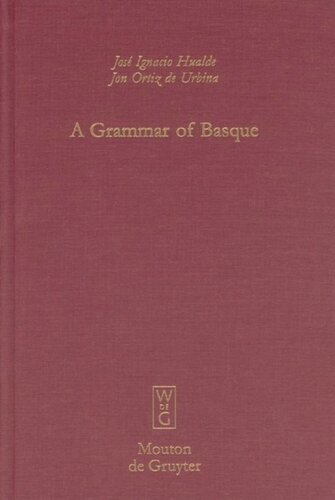

Most ebook files are in PDF format, so you can easily read them using various software such as Foxit Reader or directly on the Google Chrome browser.
Some ebook files are released by publishers in other formats such as .awz, .mobi, .epub, .fb2, etc. You may need to install specific software to read these formats on mobile/PC, such as Calibre.
Please read the tutorial at this link: https://ebookbell.com/faq
We offer FREE conversion to the popular formats you request; however, this may take some time. Therefore, right after payment, please email us, and we will try to provide the service as quickly as possible.
For some exceptional file formats or broken links (if any), please refrain from opening any disputes. Instead, email us first, and we will try to assist within a maximum of 6 hours.
EbookBell Team

4.4
32 reviewsAs the only surviving pre-Indo-European language of western Europe, Basque has often attracted the interest of linguists. Whereas, traditionally, descriptive work on Basque has primarily focused on morphological features, including its complex system of verb-argument agreement and its strict ergative pattern of inflection, during the last two decades a new generation of Basque linguists has produced very sophisticated, theoretically-informed work on many aspects of the syntax, morphology and phonology of the language, revealing, for instance, a process of focalization with many interesting properties and the existence in some dialects of an accentual system strikingly similar to that of standard Japanese. The book, bringing together this accumulated knowledge on the structure of Basque, is considerably more complete than any other existing grammar of the language. Another interesting feature of this grammar is that the description is illustrated with fully-glossed examples extracted from a great number of written sources. Although the focus is the modern standard language, dialectal features are considered in detail and examples are taken from all dialects and periods.